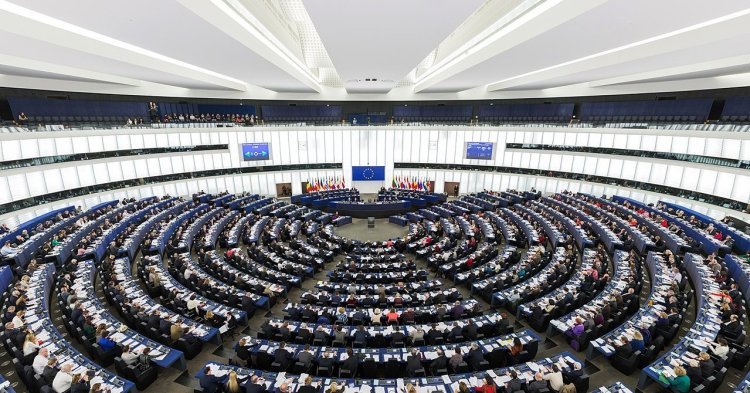Only a minority still in denial
Climate sceptics still exist. At a time where populist governments are gaining ground around the world, Identity and Democracy (ID) and the European Conservative and Reformists Party (ECR) are not afraid to rebuff a scientific consensus never before so validated.
The climate-sceptic’s stance: climate change is nothing new and is not the result of human activity. We mustn’t fear-monger. But even when they accept climate change, they argue that there are other priorities to be tackled like immigration, employment and business competitiveness. The fight against climate change would cost billions of euros, major energy sacrifices would have to be made, public services would no longer be funded, renewable energy would need many taxes…the list goes on. According to them, having a reduction plan for GHG emissions would cost too much, whilst Africa and Asia would continue to emit increasing amounts of greenhouse gases.
However, they do raise one interesting point: the environmental impact of MEPs’ monthly journeys between Brussels and Strasbourg, while the European parliament continues to preach about measures that reduce greenhouse gases.
The right wing and centre: the economy is the priority
For the European People’s Party group (EPP group) and some liberal MEPs from Renew Europe (Renew), the economy remains their priority. We mustn’t act out of panic, they say. It’s true that we may need to reform certain sectors such as industry and transport, but at the same time we must safeguard the economy, the job market and European competitiveness, by acting in cooperation with corporations.
Some conservative MEPs also highlight the opportunities that global warming could offer in developing certain economic sectors. Indeed, new technology, innovation and nuclear power must play a key role in ecological transition. Although divided in the final vote on the climate emergency, the EPP group remains supportive of the 55% target.
From the liberals to the extreme-left: a desire for more ambitious targets
For Renew, the Greens and the European Free Alliance (EFA), the Progressive Alliance of Socialists and Democrats (S&D) and the European United Left/Nordic Green Left Alliance (GUE/NGL), the state of emergency is warranted, yet the efforts at GHG reduction are insufficient. The fact remains that only the Greens/EFA overall voted against the motion for the 2030 target.
These groups are calling out for immediate action. We must meet citizens’ demands and stand up to this threat. The fate of future generations will be at stake in these next few years.
Renew want to promote renewable energies, address the problem of food waste, and adopt a political strategy for our oceans, which play a crucial role in the ecosystem. They maintain Europe must take the lead on this as this has also become a health issue.
For the left: solidarity first and foremost
During this debate, the S&D have spoken out about the importance of solidarity. More than 50 million European citizens cannot pay their energy bills. A third of the population lives along coastlines and will be forced to migrate in the next few years or decades.
To overcome this, we must provide further funding for developing countries, forsake fossil fuels and nuclear energy, put a price on air and water pollution, and invest in renewable energy, all whilst reinforcing social justice.
Urgency at the heart of the issue for the Greens
In turn, the Greens/EFA take an alarmist tone, calling attention to all the ecological catastrophes of the present and future. The EU must become a front-runner of environmental protection.
They are depending on scientific studies to raise the alarm on this almost hopeless situation, and emphasise the historic nature of the climate emergency motion. For the ecologist MEPs particularly, 100% renewable energy is the way forward; we should think about transport systems (for example, impose a jet fuel tax) and food, reform Common Agricultural Policy (CAP), and eliminate fossil fuel subsidies.
The extreme left: ‘the economic system is at fault’
Even further left in the parliament, the politicians of GUE/NGL adopt a bold stance, pointing the finger of responsibility at the capitalist economic system. We should turn towards a compensatory and not a competitive system, with social demands like public transport and shorter supply chains. Furthermore, we must put an end to international agreements that encourage high GHG emissions.
All the same, the GUE/NGL group are demanding a target of 70% reduction in GHG emissions by 2030 instead of the 55%, in addition to a target of 100% renewable energy sources, a revision of CAP, the termination of fracking and use of shale gas.
A parliamentary consensus despite everything
Overall, MEPs are agreed on the EU’s responsibility regarding climate change. Even if other parts of the world do produce more pollution than Europe, we must show ourselves to be beyond reproach if the EU is to adopt the role of international leader in the fight against global warming.
The rhetoric of climate-sceptics remains a minority amongst the assembly: the rest of the parties maintain the necessity of action in the face of worsening ecological consequences, just like the floods in Italy and wildfires in Sweden.
The fact remains that there are disagreements on the need for urgency. Moreover, the meaning of the term has been debated by English speakers, as the language makes a distinction between urgency and emergency.
By adopting these two motions, the EP European parliament has played its part, passing the baton to the European commission and the EU member states, so that these fine words can finally be substantiated by responsible action.

Follow the comments: |
|
